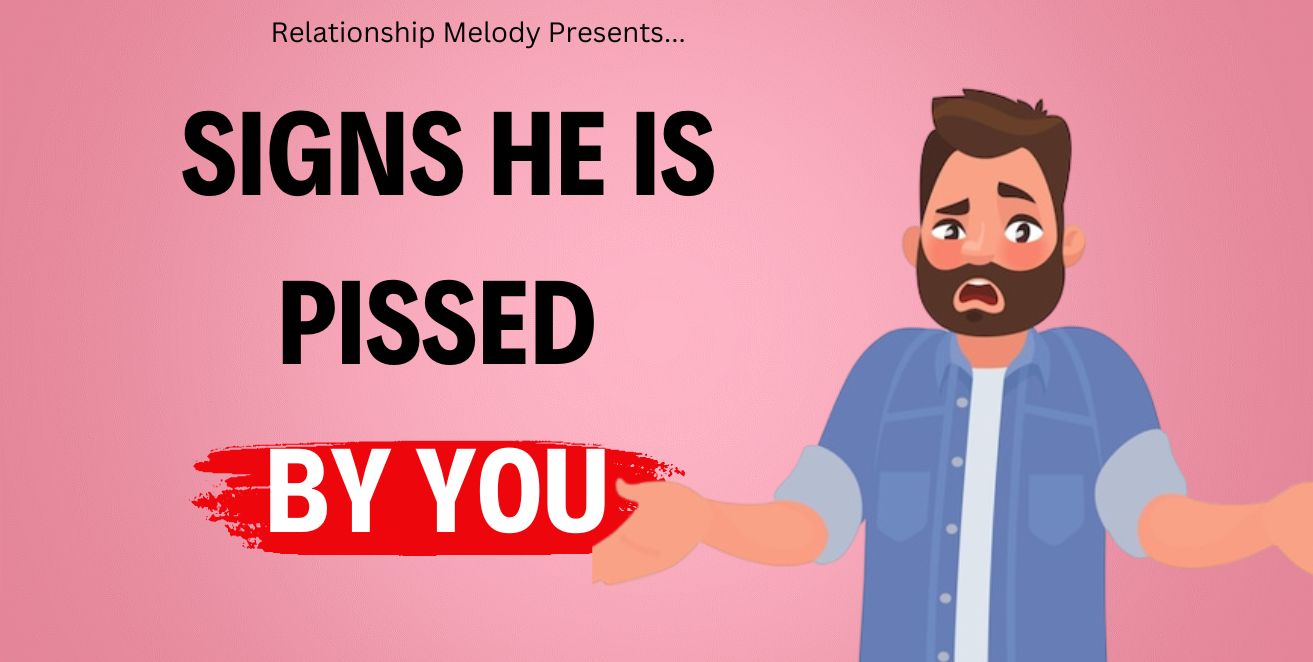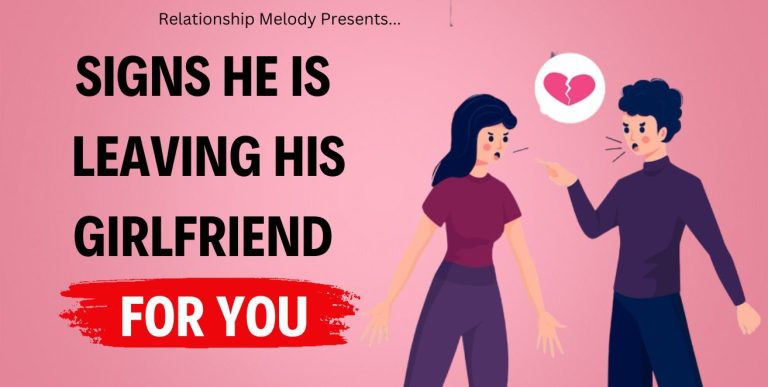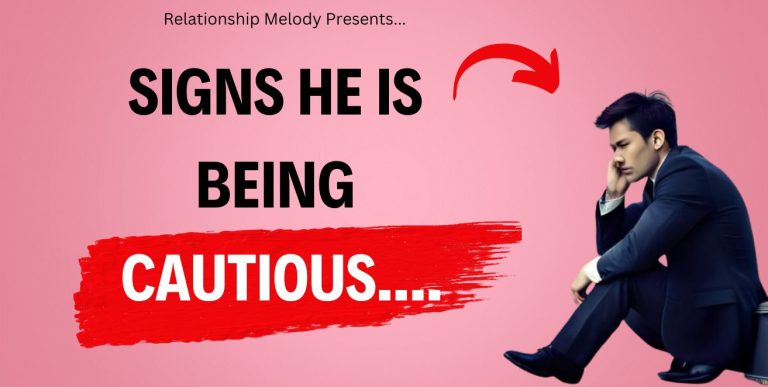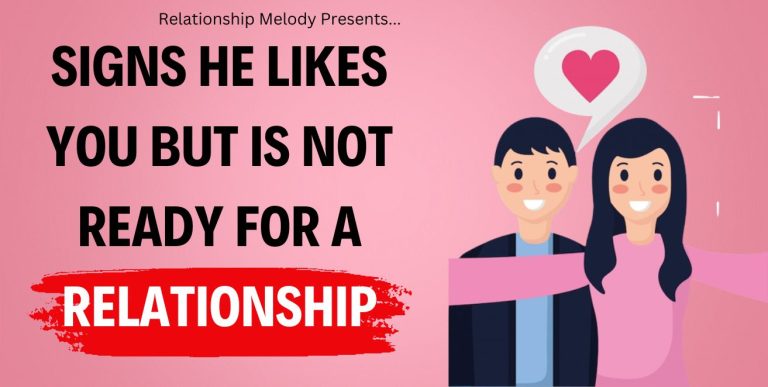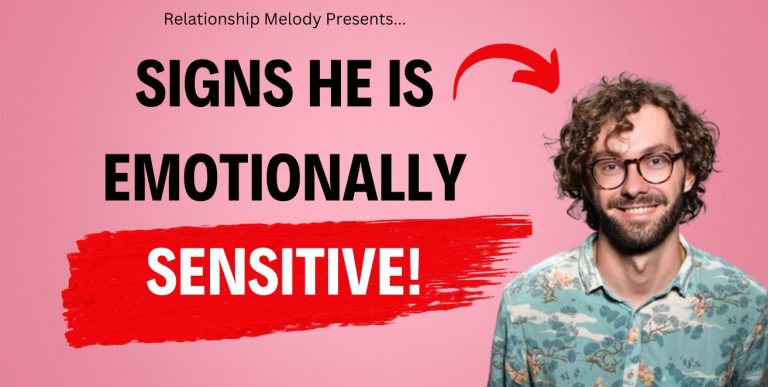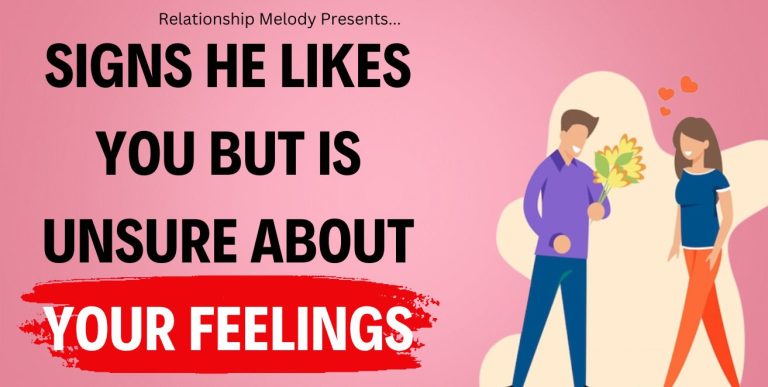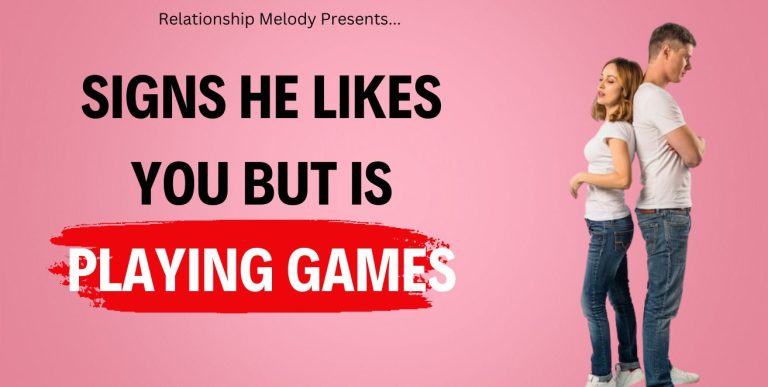25 Signs He Is Pissed By You
Relationships can be a rollercoaster ride, and at times, it’s challenging to understand what exactly is going on in your partner’s mind. One day, everything seems perfect, and the next, you notice a change in his behavior.
If you suspect that your partner may be upset with you, it’s important to pay attention to the signs he may be exhibiting. In this blog post, we will explore 25 common signs that indicate he is pissed at you.
Understanding these signs can help you address the issue, communicate effectively, and work towards resolving any underlying conflicts.
25 Signs He Is Pissed By You
Here are 25 signs to know.
#1 Sudden silence:
When your partner abruptly stops communicating or becomes distant, it could indicate that he is upset with you. The lack of communication is a red flag, as it suggests that he is avoiding conversations or is unwilling to engage with you. This silence can create tension and make it difficult to address the underlying issues in your relationship.
#2 Frequent arguments:
If small disagreements escalate into heated arguments more often, it may be a sign that your partner is harboring unresolved anger or frustration. These arguments may stem from pent-up emotions and indicate a deeper dissatisfaction within the relationship.
#3 Avoidance:
When your partner starts actively avoiding spending time with you or frequently cancels plans, it suggests deliberate distancing. This behavior demonstrates a desire to create space and indicates that he may be upset with you or the situation.
#4 Passive-aggressive behavior:
Passive-aggressive behavior involves indirect expressions of anger or resentment. Your partner may make sarcastic comments, use backhanded compliments, or engage in subtle acts of defiance. These behaviors allow him to express his frustration indirectly while avoiding confrontation.
#5 Lack of eye contact:
Avoiding eye contact can indicate discomfort or difficulty facing the issues at hand. It may suggest that your partner is finding it challenging to express his feelings directly or is intentionally avoiding confrontation.
#6 Criticism:
If your partner starts frequently criticizing your actions, choices, or behavior, it may be a sign of underlying dissatisfaction. Criticism can be an outlet for his frustration, as he may use it to express his disappointment or disapproval.
#7 Disinterest in your life:
When your partner shows little interest in your daily activities, important events, or personal goals, it may indicate that he is upset with you. A lack of engagement in your life suggests emotional detachment and diminishing investment in the relationship.
#8 Reduced affection:
A decrease in physical affection, such as hugs, kisses, or intimate gestures, can be a clear indication of emotional distance. Your partner may withhold physical affection as a way to express his displeasure or to create a barrier between you.
#9 Increased irritability:
If your partner becomes easily irritable, even over minor issues, it may be a sign that he is carrying unresolved anger. He may react with impatience or annoyance in situations that previously wouldn’t have bothered him, reflecting his underlying frustration.
#10 Unresponsiveness:
When your partner takes longer to respond to your messages or calls, it may be a deliberate attempt to distance himself emotionally. Delayed responses can signify a lack of interest or a desire to create space in the relationship.
#11 Cold or dismissive tone:
Communication with a cold or dismissive tone may indicate that your partner is harboring negative emotions. He may respond to your attempts at conversation with indifference or condescension, expressing his displeasure indirectly.
#12 Lack of support:
If your partner fails to offer you emotional support during challenging times, it could be a sign that he is upset with you. When he doesn’t provide the comfort and understanding you need, it may indicate a lack of empathy and a strain in the relationship.
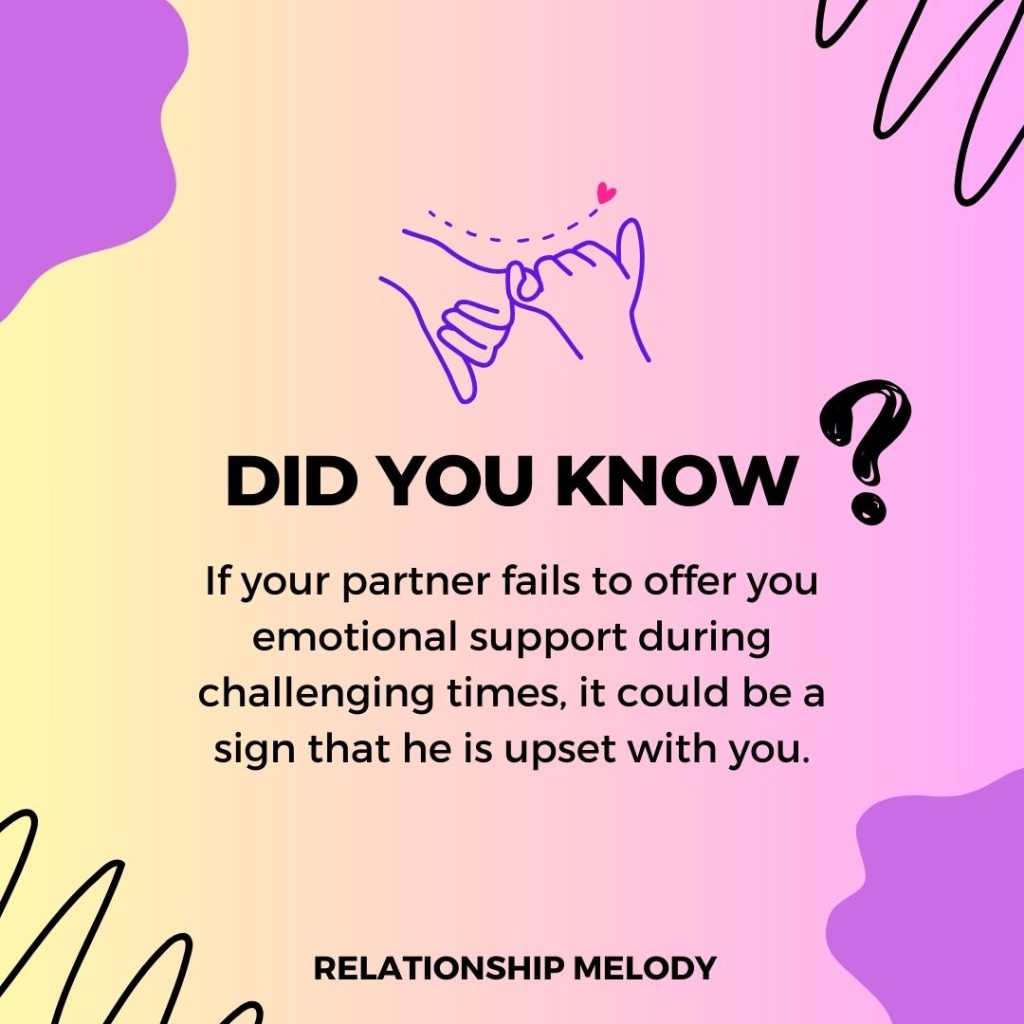
#13 Withholding affection:
Your partner may withdraw emotional intimacy, such as cuddling, holding hands, or engaging in intimate conversations. Withholding affection can be a way for him to express his emotional distance and dissatisfaction.
#14 Excessive criticism:
When your partner continuously nitpicks and finds faults in everything you do, it suggests a heightened level of dissatisfaction. Excessive criticism can erode your self-esteem and create a negative atmosphere within the relationship.
#15 Stonewalling:
Stonewalling occurs when your partner shuts down during discussions or conflicts, refusing to engage or address the issues at hand. This behavior can be frustrating and prevents effective communication, making it difficult to resolve conflicts.
#16 Disregarding your opinion:
If your partner dismisses your thoughts and feelings, it demonstrates a lack of respect and consideration. Disregarding your opinion implies that he may not value your input or consider your perspective important, leading to feelings of being invalidated and unappreciated.
#17 Increased sarcasm:
Using sarcasm as a defense mechanism is common when someone is upset. Your partner may employ sarcasm to mask his frustration or to indirectly express his disapproval or anger.
#18 Change in routine:
If your partner alters his daily routine or habits without explaining, it could be a sign that something is bothering him. These changes may be an attempt to create distance or disrupt the established dynamic as a way to express his discontent.
#19 Lack of trust:
If your partner becomes suspicious of your actions or accuses you without evidence, it signifies a lack of trust. This suspicion may arise from his unresolved emotions or a perception that you have done something to upset him.
#20 Emotional outbursts:
Uncharacteristic bursts of anger or frustration can indicate that your partner is struggling to manage his emotions. These outbursts may be triggered by underlying resentment or dissatisfaction within the relationship.
#21 Unwillingness to compromise:
If your partner consistently refuses to find a middle ground or compromise in conflicts, it suggests a rigid and stubborn attitude. This unwillingness to work towards mutually beneficial resolutions can indicate his displeasure or a lack of investment in the relationship.
#22 Ignoring your needs:
Your partner may disregard your emotional or physical needs, showing a lack of empathy and consideration. Ignoring your needs suggests that he is preoccupied with his own emotions and may be unwilling to prioritize your well-being.
#23 Withdrawal from intimacy:
Physical and emotional withdrawal can be a sign that your partner is upset. He may become distant, avoiding physical intimacy or deep emotional connections, creating a noticeable shift in the dynamics of the relationship.
#24 Increased criticism of your appearance:
If your partner starts focusing on your physical flaws or frequently criticizes your style or appearance, it may reflect his underlying frustration. Criticizing your looks can be an attempt to express his dissatisfaction indirectly.
#25 Dismissive body language:
Body language speaks volumes, and when your partner exhibits dismissive behaviors such as crossing arms, avoiding physical contact, or turning away, it indicates disapproval and a lack of interest. These non-verbal cues suggest that he may be upset and withdrawing emotionally.
Read more: Signs He Is Pushing You Away.
Conclusion:
When you notice any of these signs, it’s crucial to address the underlying issues in your relationship. Open and honest communication is key to resolving conflicts and rebuilding trust. Instead of jumping to conclusions, take the time to have a calm and respectful conversation with your partner.
Remember, everyone expresses their emotions differently, so it’s important to approach the situation with empathy and understanding. By acknowledging and addressing his feelings, you can work together towards a healthier and happier relationship.
Remember, it’s not always easy, but with effort, patience, and effective communication, you can navigate through rough patches and strengthen your bond.
Liked Our Article?
Our Patreon link: https://www.patreon.com/RelationshipMelody

Welcome to Relationship Melody! Our website is dedicated to all things on relationships, dating, and love! We are passionate about helping you navigate the ups and downs of love, and our goal is to provide you with valuable insights and information that will make your journey toward a fulfilling relationship smoother and more enjoyable.

